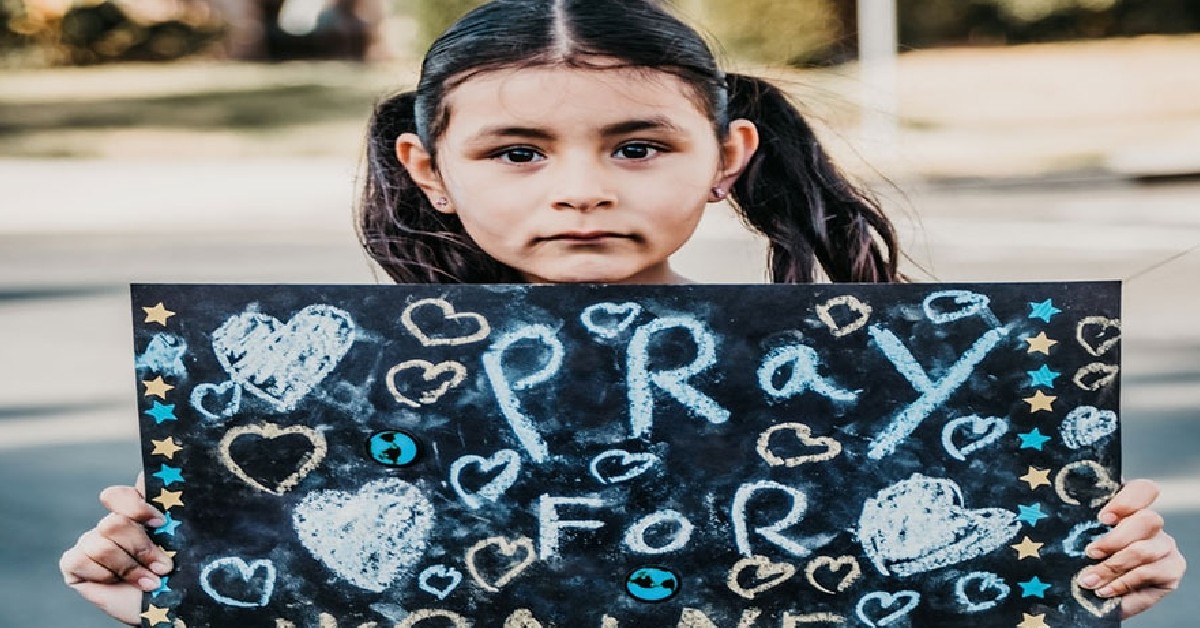After Russia invades Ukraine, everywhere in the television news channels, or newspapers are reflecting the devastated, ruined condition of people and places. Children can sense that something going wrong. They are watching the brutality of war in newspapers, television, and even sense that in the conversation of adults. It is nearly impossible to keep the children unaware of this situation. These exposers, continuous heart-wrenching news create anxiety for children. Teachers can make them learn to be hopeful and they can grow a sense of thoughtfulness among the children and young people through honest discussion and developmentally appropriate activities.
In this situation, children need a place where they can vent out their feelings, where they can talk and converse freely. A classroom can be the safest place where they can share and explore their feelings and the teacher can be the supporter to ease their feelings, to help them if they want to help in their ways.
The teacher should be prepared before any conversation. They have to know keenly about students feeling about war. Children coming from different backgrounds may have different feelings and experiences about war. Some students may face anxiety because their loved one is in the war zone, some students may feel low because they experienced wartime in another part of the world, some with refugee backgrounds may feel anxious about the after-war effects. So, teachers have to be cautious while making conversation as talking about hazardous things may trigger their old memories and can lead to depression, anxiety, and restlessness.
First of all, the teacher should validate and acknowledge the respective student’s concerns. Wars always have catastrophic effects on humanity. Tell your children that it's okay to feel anxious. Try to know from them what exactly they have listened to about war. If there is any misinformation, address them. Make them aware of the world situation and discuss with them the reason and effects of war being neutral. A teacher should always share the information neutrally. We, teachers, are responsible for our students' physical, mental, and emotional development. So, we have to inform on one hand about the situation and on the other hand, we have to pacify students' anxiety and need to give them hope for a better future. Explain to them why it is important to give attention to the other parts of the world. Research has shown that knowing different parts of the world makes a child empathetic. A teacher should always encourage the students to know his/her surrounding, especially those who come from different backgrounds, as it makes students more understanding. Teachers should listen and address all the queries and never should avoid the tough question. Only to keep in mind how much information needs to share with the child as 12 years old needs to have more maturated information than a 6 years old child.
Primary school students may not understand situations like their older peers. In that case, the teacher should take the help of pictures books, hand-made flashcards, storybooks, etc, those are relevant to the particular situation. It is very important to make them understand the situation as they might have not expressed but they can sense it around. If the unsaid questions, curiosity cannot be dissolved it could make them anxious which could lead to several mental and emotional hazards. You can give them activities by which they can express their feelings. The teacher should instil hope in them. They can show maps to the children, can talk about the distance from the warzone, and can make them feel safe.
Handling secondary students is a bit easier as they are more emotionally regulated. They have better visualisation of war than their little peer. Even then constant conversation with them, giving special attention and care to the child who is directly associated with war, being more compassionate and empathetic while talking is important for them.
It is nearly impossible to keep the children unaware of the recent war situation, but a teacher can make the classroom more comfortable for them by talking, empathy, conversation, and several activities.
Reference:
Teachers Can Offer A Safe Space For Children To Talk About War In Ukraine, The Conversation
